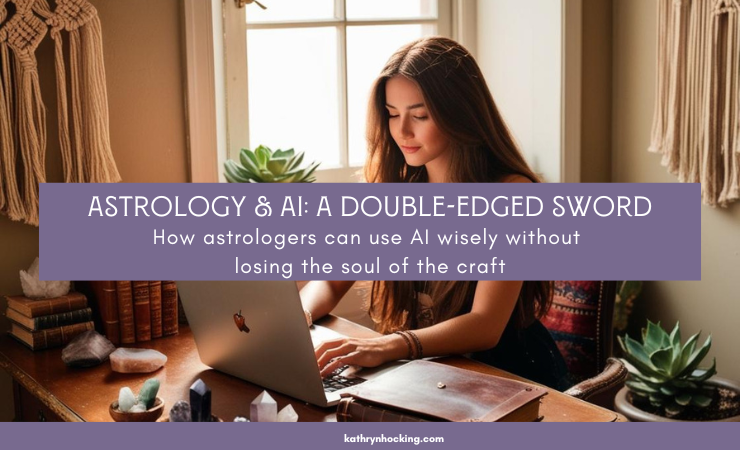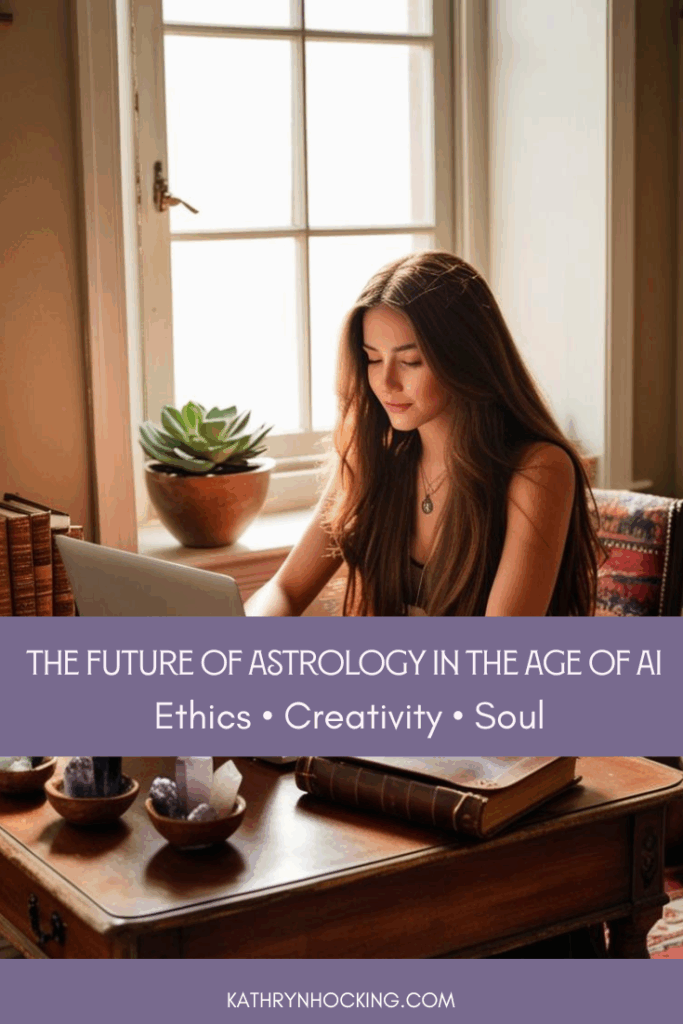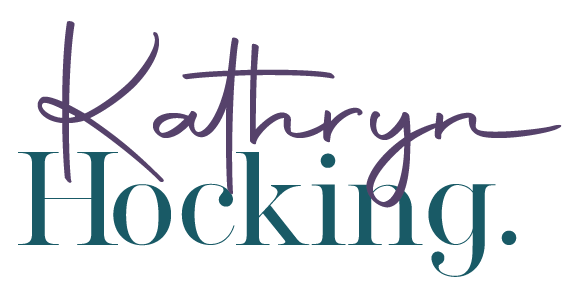
At the recent Astrological Association conference, one topic pulsed through the halls: Astrology & AI.
Some astrologers leaned in with curiosity, some recoiled with concern, and many sat somewhere between awe and unease.
This tension is fitting—because AI is both a dazzling new tool and a double-edged sword. It promises efficiency and inspiration, yet it risks hollowing out the very soul of our practice.
So where do we, as astrologers, stand in this unfolding story?

The Allure and the Limits of AI
AI is, in elemental terms, Air: fast, clever, linguistic, buzzing with data. But it is not Fire (creativity), Earth (grounded embodiment), or Water (empathy and intuition). It can mimic knowledge but not wisdom, repeat words but not hold silence.
Technically, it still stumbles. It miscalculates placements, aspects, and transits. It doesn’t know which house system you use, which astrology school you trained under and the nuances or why you might prioritise one astrological rule over another.
It doesn’t know all your lived experience of placements, transits, progressions in your own life and those of your clients.
And it expresses itself with such confidence that it can bamboozle the unsuspecting.
Unless you are already an astrologer who knows how to check, reframe, and contextualise, you will almost certainly be misled.
Echoes of History: From the Printing Press to the Algorithm
Every era has its technological disruption. The printing press sparked fears it would erode oral tradition and the Industrial Revolution was decried for devouring craftsmanship. And now, AI threatens to swallow creativity whole.
And yet: those earlier revolutions also expanded access and visibility. They birthed new opportunities even as they reshaped old crafts. AI is no different. It is here to stay.
The question isn’t “should we resist it?” but rather “how do we wield it with wisdom?”
Astrology in the Age of Air: Uranus, Pluto, Neptune
Astrology itself reflects this technological pivot.
- Uranus in Gemini (2025–2033): Uranus governs innovation, shocks, disruption. In Gemini, the sign of short-form communication, language, and networks, it screams of AI, algorithms, and digital linguistics reshaping our world.
- Pluto in Aquarius (2023–2043): Pluto transforms power and systems. In Aquarius, it dismantles and rebuilds around technology, collectives, and social progress. This is the backdrop for AI as a force that can empower communities or centralise control.
- Neptune in Aries (2025–2039): Neptune dissolves boundaries, inspiring visions and illusions alike. In Aries, it fuses with pioneering zeal, hinting at spiritualised (or dangerously glamorised) technologies.
Together, these are currently forming a Minor Grand Trine, a rare energetic circuit suggesting synergy between technological revolution, collective transformation, and spiritual fire. It’s a cosmic mirror of this moment: the intoxicating promise and peril of AI.
Are we flying too close to the sun, as Icarus once did? Or are we learning how to use it without being consumed?
What AI Cannot Do
For all its sparkle, there are places AI cannot tread:
- Intuition & Empathy: It cannot sit with your grief, notice your silence or non-verbal cues, or offer a reassuring hug.
- Co-Creation: It cannot share commitment and co-create a plan that is followed up on
- Framing & Ethics: It cannot decide what is safe to include and how to express difficult things, and hold confidentiality
- Cultural Attunement: It doesn’t grasp cultural context.
- Lived experience & contextualisation: it cannot draw on your years of lived experience and that of clients and contextualise to their exact personal situation. It doesn’t know when to ask further questions and go deeper.
- Intervention: It cannot make a referral when someone is in crisis, triage risk in moments of potential or actual self-harm or when harm to others is imminent. It doesn’t check back in to make sure you are OK.
These are not add-ons to astrology—they are its soul. Without them, astrology is reduced to data points and keywords, a lifeless map without a navigator.
The Shadows: Ethical and Ecological Concerns
AI is not just inaccurate—it can be dangerous.
When asked about death, mental illness, or trauma, AI may respond with linguistic confidence but no ethical compass. Already, there have been tragic deaths linked to people treating AI as a therapist or even worse, a supporter and assister of suicide. I suspect it wont be long before a mass casualty event is linked to “discussions” with AI.
We must never forget: AI is not a healer or counsellor. It is a machine.
And it is a machine programmed to be supportive and encouraging no matter the circumstances. So much so that I have already had this discussion with my children, who have at times significant anxiety, and past mental health concerns.
There are ecological shadows too. AI consumes vast amounts of water and energy, often diverted from vulnerable communities. Technology without limits comes at a human and planetary cost.
At its worst, AI is a semi-sociopathic mirror: reflecting our inputs, amplifying them, and feeding them back without conscience.
My Soul-Aligned Approach to AI
So how do I use it? Carefully.
- I do my normal astrological process first.
- If I feel stuck, I’ll ask AI for prompts or new lines of enquiry to consider – the same way I might consult an astrological text, but more efficiently.
- Once I’ve written my own words, I may ask it to refine the structure or reduce repetition.
- I use it to gather threads, not to weave the tapestry.
- I’ve even coded my own methodology into it, so that it reflects my approach—but still, I review and edit everything.
- I also use it a lot for non-astrological tasks to free up my time to focus on creative, soul work
In short, AI assists me, but it does not replace me.
The Call to Astrologers: Upping Our Game
Here’s the truth: if we don’t practice, we lose the art. Astrology is not sustained by machines—it lives through our hands, hearts, intuition and lived experience.
We can treat AI as a supportive tool, but never as our captain. Its role is to support us, not to steer us. This moment calls us to deepen our skills, sharpen our discernment, and embody ethical leadership.
It asks us to trust ourselves deeply and not outsource our intuitive process.
Because astrology is more than words and calculations. It is a living, breathing art that requires human context, care, and soul.
Conclusion: Astrology with Heart in the Age of AI
AI is not inherently evil. Like air, it can lift or scatter.
Used wisely, it can be a powerful assistant. Used carelessly, it risks stripping astrology of its artistry, its ethics, its humanity and its soul.
Let us embrace innovation without surrendering our sovereignty. Let us keep astrology alive, intuitive, soulful, and human in an age of algorithms.
Acknowledgements: This piece draws on talks by astrologers Alejo Lopez, Lianne McCafferty, Akihiro Nakao, and the brilliant panel at the Astrological Association conference, as well as many 1:1 discussions with colleagues during the event as well as my own work to date in this area.
